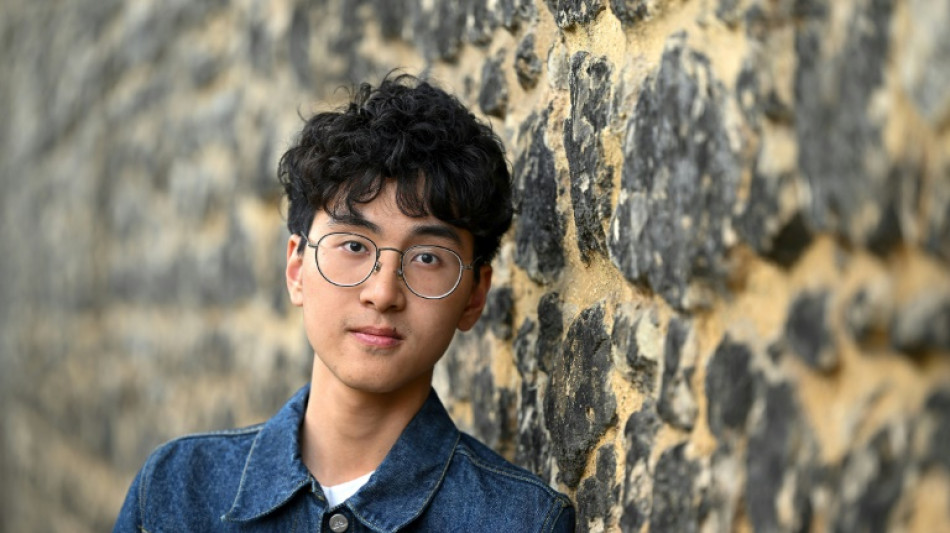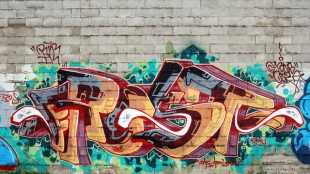
-
 Munsey leads Scotland to 207-4 against Italy at T20 World Cup
Munsey leads Scotland to 207-4 against Italy at T20 World Cup
-
Japan restarts world's biggest nuclear plant again

-
 Bangladesh poll rivals rally on final day of campaign
Bangladesh poll rivals rally on final day of campaign
-
Third impeachment case filed against Philippine VP Duterte

-
 Wallaby winger Nawaqanitawase heads to Japan
Wallaby winger Nawaqanitawase heads to Japan
-
Thailand's Anutin rides wave of nationalism to election victory

-
 Venezuela's Machado says ally kidnapped by armed men after his release
Venezuela's Machado says ally kidnapped by armed men after his release
-
Maye longs for do-over as record Super Bowl bid ends in misery

-
 Seahawks' Walker rushes to Super Bowl MVP honors
Seahawks' Walker rushes to Super Bowl MVP honors
-
Darnold basks in 'special journey' to Super Bowl glory

-
 Japan's Takaichi may struggle to soothe voters and markets
Japan's Takaichi may struggle to soothe voters and markets
-
Seahawks soar to Super Bowl win over Patriots

-
 'Want to go home': Indonesian crew abandoned off Africa demand wages
'Want to go home': Indonesian crew abandoned off Africa demand wages
-
Asian stocks track Wall St rally as Tokyo hits record on Takaichi win

-
 Bad Bunny celebrates Puerto Rico in joyous Super Bowl halftime show
Bad Bunny celebrates Puerto Rico in joyous Super Bowl halftime show
-
Three prominent opposition figures released in Venezuela

-
 Israeli president says 'we shall overcome this evil' at Bondi Beach
Israeli president says 'we shall overcome this evil' at Bondi Beach
-
'Flood' of disinformation ahead of Bangladesh election

-
 Arguments to begin in key US social media addiction trial
Arguments to begin in key US social media addiction trial
-
Agronomics Limited Announces Net Asset Value Calculation as at 31 December 2025

-
 UK-Based Vesalic Limited Emerges from Stealth with Landmark Discovery of Potential Non-CNS Driver of Motor Neuron Diseases, including ALS, and Breakthrough Therapeutic and Diagnostic Opportunities
UK-Based Vesalic Limited Emerges from Stealth with Landmark Discovery of Potential Non-CNS Driver of Motor Neuron Diseases, including ALS, and Breakthrough Therapeutic and Diagnostic Opportunities
-
Gotterup tops Matsuyama in playoff to win Phoenix Open

-
 New Zealand's Christchurch mosque killer appeals conviction
New Zealand's Christchurch mosque killer appeals conviction
-
Leonard's 41 leads Clippers over T-Wolves, Knicks cruise

-
 Trump says China's Xi to visit US 'toward the end of the year'
Trump says China's Xi to visit US 'toward the end of the year'
-
Real Madrid edge Valencia to stay on Barca's tail, Atletico slump

-
 Malinin keeps USA golden in Olympic figure skating team event
Malinin keeps USA golden in Olympic figure skating team event
-
Lebanon building collapse toll rises to 9: civil defence

-
 Real Madrid keep pressure on Barca with tight win at Valencia
Real Madrid keep pressure on Barca with tight win at Valencia
-
PSG trounce Marseille to move back top of Ligue 1

-
 Hong Kong to sentence media mogul Jimmy Lai in national security trial
Hong Kong to sentence media mogul Jimmy Lai in national security trial
-
Lillard will try to match record with third NBA 3-Point title

-
 Vonn breaks leg as crashes out in brutal end to Olympic dream
Vonn breaks leg as crashes out in brutal end to Olympic dream
-
Malinin enters the fray as Japan lead USA in Olympics team skating

-
 Thailand's Anutin readies for coalition talks after election win
Thailand's Anutin readies for coalition talks after election win
-
Fans arrive for Patriots-Seahawks Super Bowl as politics swirl

-
 'Send Help' repeats as N.America box office champ
'Send Help' repeats as N.America box office champ
-
Japan close gap on USA in Winter Olympics team skating event

-
 Liverpool improvement not reflected in results, says Slot
Liverpool improvement not reflected in results, says Slot
-
Japan PM Takaichi basks in election triumph

-
 Machado's close ally released in Venezuela
Machado's close ally released in Venezuela
-
Dimarco helps Inter to eight-point lead in Serie A

-
 Man City 'needed' to beat Liverpool to keep title race alive: Silva
Man City 'needed' to beat Liverpool to keep title race alive: Silva
-
Czech snowboarder Maderova lands shock Olympic parallel giant slalom win

-
 Man City fight back to end Anfield hoodoo and reel in Arsenal
Man City fight back to end Anfield hoodoo and reel in Arsenal
-
Diaz treble helps Bayern crush Hoffenheim and go six clear

-
 US astronaut to take her 3-year-old's cuddly rabbit into space
US astronaut to take her 3-year-old's cuddly rabbit into space
-
Israeli president to honour Bondi Beach attack victims on Australia visit

-
 Apologetic Turkish center Sengun replaces Shai as NBA All-Star
Apologetic Turkish center Sengun replaces Shai as NBA All-Star
-
Romania, Argentina leaders invited to Trump 'Board of Peace' meeting


'Private rebellion': Hong Kong's anglophone poets gain recognition abroad
As a teenager stuck in Hong Kong's pressure-cooker school system, Eric Yip found his escape in writing poetry -- never dreaming that one day his work would go on to win a top prize halfway across the world.
In March, at the age of 19, he became the youngest ever winner of the United Kingdom's National Poetry Competition.
He beat more than 7,000 contenders from 100 countries and placed himself squarely among a cohort of Hong Kong poets writing in English that has found increasing recognition over the past decade.
Now an economics undergraduate at Cambridge, Yip recalled the "liberating" feeling of reading material that had nothing to do with high-school English classes taught according to a strict syllabus.
"Writing poems was a private rebellion against this regimented approach," Yip told AFP.
His award-winning "Fricatives" begins with the narrator taking English lessons as a "spectacled boy with a Hong Kong accent" and opens up to explore issues of language, race, sex and migration.
A former British colony, Hong Kong has developed its own literary tradition in both Chinese and English, although anglophone poets remain a minority and receive little establishment support.
"There's always a certain estrangement one feels when writing in a second language", Yip said, but English has now become his "private language" in which words flow more naturally.
"What matters to me is the emotional truth of writing. If English is what will get me closer to that, then I'll keep using it."
- Queer poetry in spotlight -
Anglophone poets who spoke to AFP agreed their output was hardly mainstream, but said writing from the margins allowed them to challenge Hong Kong's norms.
Yip's win caused a stir in Hong Kong media, though most newspapers were silent on the poem's description of a gay encounter -- mirroring the mixed reactions of some local readers.
"The sexual element and the poem's queerness are absolutely essential," Yip said.
"I was thinking about the parallels with oracy and colonialism, how it all ties back to submission."
Other Hong Kong poets who have found success in tackling LGBTQ themes include Nicholas Wong, whose collection "Crevasse" won one of the best-known prizes for queer literature worldwide in 2016.
His latest collection was a finalist for the same Lambda Literary Awards' gay poetry prize this year.
Wong said his writing tapped into themes about "everyday desire" in a way he found immediate and spontaneous.
In a recent poem, the speaker imagines inviting his father to his wedding held in Taiwan -- the only jurisdiction in Asia where gay marriage is legal.
Wong, 43, who teaches at a local university, said he had witnessed Hong Kong's community of poets grow into something "more substantial, less fragile".
Having been a published poet for over a decade, Wong said he felt emboldened to experiment with language in a way that might feel obscure to Western readers.
"Maybe because it's my second language, I don't assume it will love me back. So I can do whatever I want with it and to it," he told AFP.
- Poetic dissent -
Academics have shown "growing interest" in Hong Kong poetry to understand how residents feel about the city's social and political transformation, according to scholar and poet Jennifer Wong.
The massive citywide democracy protests three years ago -- and Beijing's subsequent crackdown --proved a watershed.
The movement included violence that some experts say left many quietly traumatised, while solidarity between protesters gave rise to outbursts of creativity.
Last year anonymous poets behind the US-based Bauhinia Project published "Hong Kong Without Us", which they described as a crowdsourced "found poetry" book.
During the protests, they translated snippets of Hong Kongers' voices -- from social media, graffiti, news articles and public submissions -- and distributed them on postcards in the United States.
"We were especially interested in... how the urgency of the politics holds out the potential for a vulnerable, emotional voice," one of the poets told AFP.
"We were just trying to articulate the voice that we imagined to be the best of Hong Kong."
The project blossomed into a book and has become an access point for US readers to "engage emotionally" with Hong Kongers beyond news headlines, the poet said.
"Hong Kong Without Us" concludes with a postscript saying the book is contraband.
In 2020, Beijing imposed a sweeping national security law in Hong Kong that has criminalised most dissent, and many protest-themed literary works have been taken off bookstore shelves.
The poet said he was worried that the repressive political climate would seal shut the "narrow crack" for Hong Kongers to express emotional vulnerability.
"I don't know... what's going to happen in the future when that already slim crack might be gone."
J.Williams--AMWN

